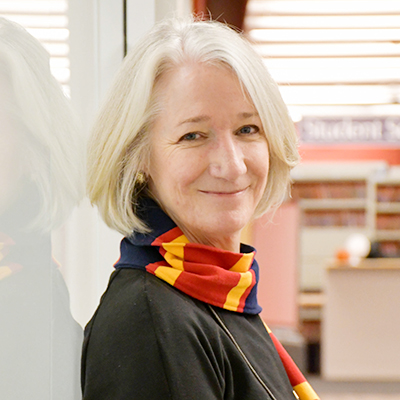Dean of the Faculty of Arts and Science reappointed to new term
March 22, 2022
Share

Queen’s University announces the reappointment of Dr. Barbara Crow for a second term as Dean of the Faculty of Arts and Science (FAS) effective July 1, 2022. Dean Crow’s reappointment is for a term of three years ending June 30, 2025, at which time Dr. Crow has indicated her intention to retire and focus on her research.
Dr. Crow has served as Dean since July 2017. During Dr. Crow’s first term as Dean, FAS developed its first Strategic Plan following consultations with students, staff, and faculty, alumni, and members of the broader community. The strategic plan is based on four guiding principles: 1) equity, diversity, and inclusion, including anti-racism, decolonization, and Indigenous resurgence; 2) excellence in teaching, research, and service; 3) transparency, accountability, and fairness; and 4) continuous learning, professional development, and global engagement.
As Dean, Dr. Crow also championed numerous EDII initiatives. She introduced a new major in Indigenous Studies, the creation of three new Indigenous learning spaces, and the development of pre-doctoral fellowships for Indigenous scholars in Canada. The faculty also recruited eight new scholars (including five Queen’s National Scholars) to support a new minor in Black Studies.
To support the growth in research in FAS, more than 170 faculty members were hired, including an unprecedented 70 per cent coming from equity-deserving groups. A focus has also been placed on giving faculty members the resources and infrastructure to support research partnerships and integration of students into faculty research. The faculty has achieved Natural Sciences and Engineering Research Council of Canada (NSERC) and Social Sciences and Humanities Research Council (SSHRC) success rates exceeding national averages; the development of interdisciplinary research teams to achieve high success rates in competitions like the New Frontiers in Research Fund; increases in research involving industry collaborations with nation-leading results in the NSERC Alliance competitions; and an increase in the number of graduate students supported by faculty research grants.
Principal Patrick Deane and the Provost Mark Green wish to extend their sincere thanks to the members of the Principal’s Advisory Committee for their guidance.